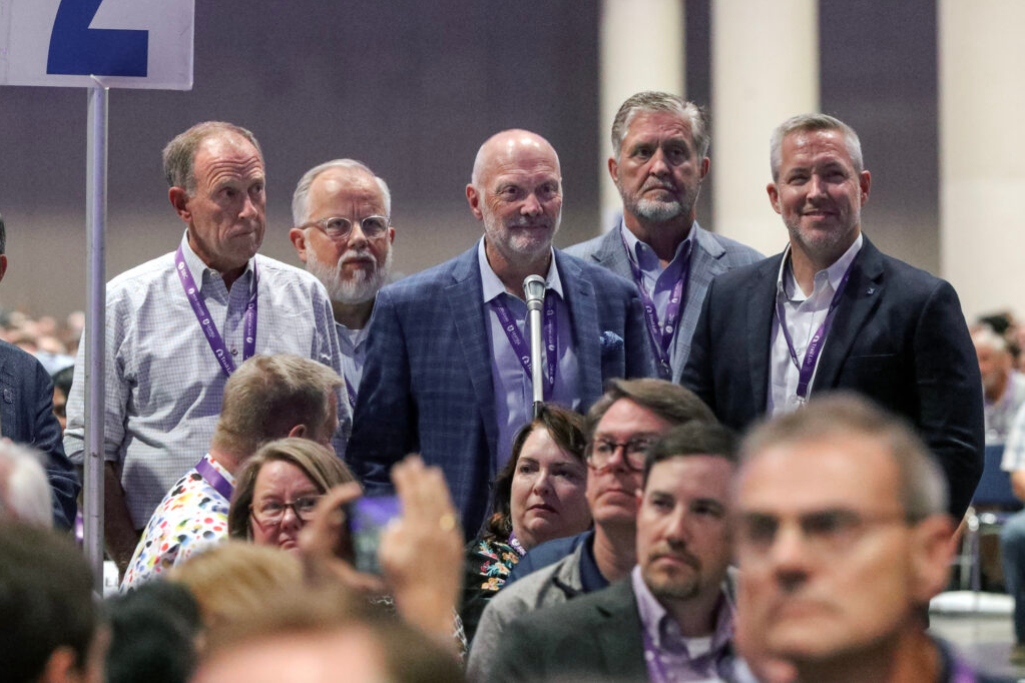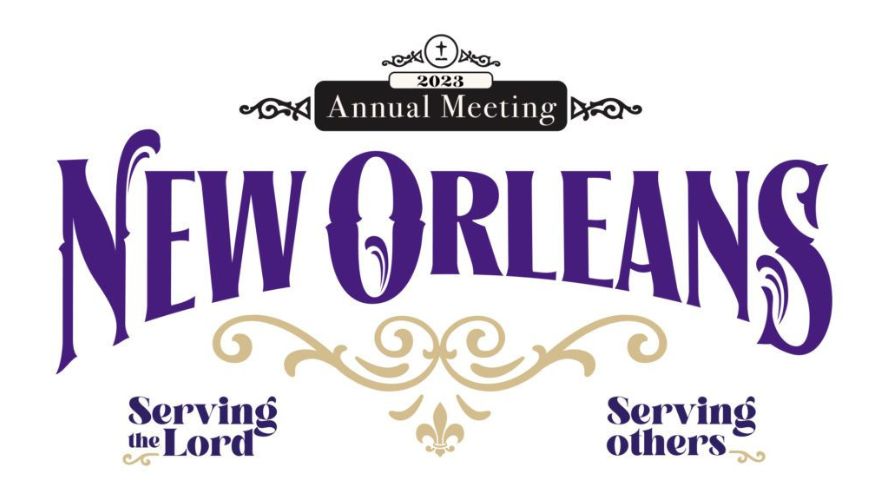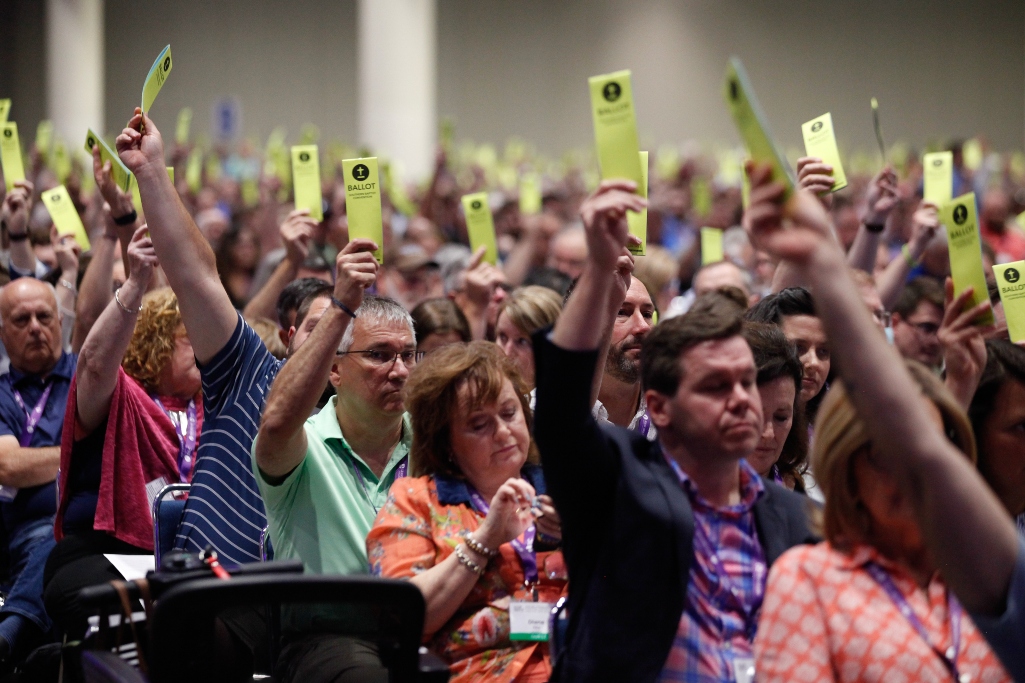
Former SBC presidents (left to right) Bryant Wright, Ed Litton, James Merritt, Steve Gaines and J.D. Greear support a motion made by Wright June 13 during the afternoon session at the SBC annual meeting in New Orleans.
NASHVILLE (BP) – In an April phone call with James Merritt, Bryant Wright got right to the heart.
He was concerned over the current state of the Southern Baptist Convention, particularly the discourse over women’s roles in ministry. Merritt, with similar concerns, had already talked about it with other Southern Baptist leaders.
There was a need for clarity and consistency, two words Merritt would use two months later on the floor of the SBC annual meeting in New Orleans.
Calling himself “complementarian to the core” and “fully committed to every jot and tittle of the Baptist Faith and Message,” Merritt called for a task force to examine what it means for a church to be deemed in “friendly cooperation” with the SBC. He was joined at the microphone by former SBC presidents Steve Gaines, J.D. Greear, Ed Litton and Wright.
The motion, approved by messengers, asks that a “broadly-based” task force be named by SBC President Bart Barber for that purpose.
The standard, and who decides it
In developing the motion, Merritt and his friends discussed what should be viewed as the directional documents for the Convention. What was the standard and who will determine how that standard is used?
“The first thing I brought up was, is there any word from the Lord on this?” Merritt said.
“Before this train got too far down the tracks, I thought we needed some level-headed, solid Southern Baptists … to analyze the situation. Let’s make it … about what we want to do, why we want to do it and the way we want to do it.” – Bryant Wright
He landed on the growth of the early church in Acts 15. That growth brought new believers who were different from the established church. Issues such as circumcision were becoming elevated to the point of asking whether these new believers were really in something akin to friendly cooperation.
Merritt saw a similar discussion breaking out among Southern Baptists over women in ministry.
Online debate – where the loudest portion, at least, of denominational discussions seem to take place – has a history of bringing few peaceful resolutions.
“Before this train got too far down the tracks, I thought we needed some level-headed, solid Southern Baptists … to analyze the situation,” he said. “Let’s make it … about what we want to do, why we want to do it and the way we want to do it.”
He sought input from other past presidents, who expressed their agreement over the phone and in New Orleans.
“Every one of them said this was exactly what we need,” Merritt told BP.
Two motions connected
A motion to amend the SBC Constitution and clarify the office of pastor as limited to men received a two-thirds vote of approval by New Orleans messengers. It will need another two-thirds vote next year in Indianapolis.
Neither the amendment nor the subject are named in Merritt’s motion, though the connections are clear. That said, Merritt isn’t out to cast aspersions on anyone’s position.
“I don’t want to judge motives,” he said. “Whatever happens, at the end of the day Christian brothers and sisters are to love each other.”
But, he added, the SBC is at a crossroads he hasn’t seen since 1979, when Adrian Rogers’ election as president began the Conservative Resurgence.
That debate centered on the inerrancy of Scripture. Southern Baptists haven’t wavered on that stance, Merritt said, but the current discussion is more about interpretation and application.
Southern Baptists took a clear stance on the position of women serving as a lead pastor or elder in New Orleans, as shown with overwhelming votes to uphold the recommendations to disfellowship Saddleback Church and Fern Creek Baptist Church.
Concerns exist, however, that churches will be reported to the Credentials Committee (the group tasked with considering churches’ “friendly cooperation”) for reasons on which there is less cohesion. Greear addressed this in an interview with Baptist Press, saying danger lies in “constitutionally policing the borders.”
“We could become an entirely different convention where every year it’s about narrowing the parameters,” he said, “[where] who is in and who is out is all that we think about, and we no longer think about mission and evangelism.”
“You can’t predict what other discussions will come up,” said Merritt, who added that one state director told him 40 churches had been reported to the state convention for suspicion of being out of fellowship for various reasons.
“We need some kind of matrix, a set of railroad tracks that keep us heading in the right direction,” Merritt said.
(EDITOR’S NOTE – Scott Barkley is national correspondent for Baptist Press.)


